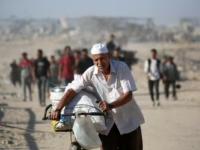Saudi Arabia has released detailed health protocols and prerequisites for pilgrims preparing to undertake Hajj in 2026, corresponding to the Islamic year 1447 AH.
This directive specifies both compulsory and suggested medical criteria that must be fulfilled before embarking on this sacred pilgrimage.
The Saudi Ministry of Health highlighted the crucial role of all countries, including Nigeria, in verifying that their prospective pilgrims are medically fit and free from conditions that could jeopardize their own health or that of fellow pilgrims during the Hajj.
Medical conditions that may disqualify individuals from participating include advanced cardiovascular, pulmonary, or renal diseases, severe chronic illnesses, and certain mental health disorders.
Among the essential health requirements set by Saudi authorities is the presentation of an official medical certificate issued by the pilgrim’s home country. This document must attest that the individual is not afflicted by serious health issues such as major organ failures involving the heart, lungs, liver, or kidneys.
Other disqualifying conditions include neurological or psychiatric impairments that affect cognitive function or cause significant motor disabilities, dementia or other degenerative brain diseases, high-risk pregnancies at any stage, ongoing cancer therapies like chemotherapy or radiotherapy, and active contagious diseases such as tuberculosis or viral hemorrhagic fevers.
Vaccination remains a pivotal element of the health prerequisites for Hajj 2026. Pilgrims are required to present valid immunization records against several infectious diseases prior to entering Saudi Arabia.
To uphold these health standards, medical screenings will be conducted at all Saudi entry points. Travelers who do not meet the stipulated health criteria may be denied entry, quarantined, or subjected to additional medical assessments. The Ministry of Hajj and Umrah emphasized, “Pilgrims diagnosed with any of the specified illnesses will be barred from travel, and all health certificates will undergo rigorous verification.”
Furthermore, Saudi Arabia retains the authority to implement additional health measures in response to global epidemics or international public health crises, in coordination with the World Health Organization (WHO).
The National Hajj Commission of Nigeria (NAHCON) has called on all prospective pilgrims to proactively fulfill the health requirements, including completing vaccinations and medical evaluations well ahead of the 2026 Hajj season.
NAHCON, in partnership with State Muslim Pilgrims Welfare Boards and authorized Tour Operators, will collaborate closely to ensure full compliance, aiming to avoid any travel interruptions upon arrival in the Kingdom for the pilgrimage.





















